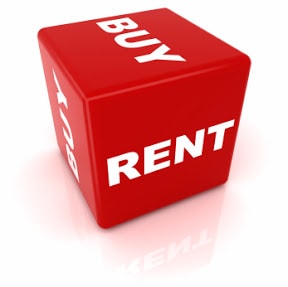 You’ve watched that amazing commercial from Wix or SquareSpace or Weebly or what-not-else-is-out-three and decided that you want to blog about fashion or your own brand or your own skin care line and you need a web site. Because internet and because it so simple they actually show it in 15 second spot on TV, between cereal and shampoo commercials. Great, you think, I’ll get myself one of those and start a web site. Sometimes even for free or for a price of cup of coffee per month. Because we all want instant gratification and we want to post our first Facebook update “Yo, I’ve got a fashion blog and here’s my first post about fashion”.
You’ve watched that amazing commercial from Wix or SquareSpace or Weebly or what-not-else-is-out-three and decided that you want to blog about fashion or your own brand or your own skin care line and you need a web site. Because internet and because it so simple they actually show it in 15 second spot on TV, between cereal and shampoo commercials. Great, you think, I’ll get myself one of those and start a web site. Sometimes even for free or for a price of cup of coffee per month. Because we all want instant gratification and we want to post our first Facebook update “Yo, I’ve got a fashion blog and here’s my first post about fashion”.
Despite this having been out for a few years people still go and make the same mistake. Here’s why it’s a bad idea to start your own brand (or blog) on someone else’s platform.
1. You don’t own anything. Plain and simple. You are leasing the spot on the web. If the platform of your choice will shut down – you’re out of luck. You’ll have to move your content, but what you cannot move is links TO your content. All those shares and cross-posts that created your online reputation – gone for good. So the moment when you commit to starting your own web site (whether it’s a blog, e-commerce, portfolio or anything else) – think about future. What would happen if you become popular? What would happen if the service you’re starting this on will shut down. Even Google shuts down things that are popular, so smaller guys can always do the same even faster.
2. You don’t control anything. Most platforms allow you to change a few things here and there, maybe throw in a banner or two, switch between a few free templates that were beaten to death even before you have joined. But in most cases you cannot work a completely custom design or add specific features. Even with WordPress.com (hosted WordPress platform) – one of the most flexible platforms out there – there are severe limitations on features and plugins allowed for the use. When you decide you want to start a blog and, maybe, sell a thing or two later on – think ahead and choose the platform that will allow you to branch out into other ways of making money.
3. You don’t know what is going on behind the scene. Service may change certain features or policies – and what was totally fine just a week ago is now thrown to the outskirts of the service. Case in point – adult themed blogs on Tumblr. For years they have existed in their own niche, people had reviewed products and services and everyone was playing nice. “Once upon a time” (a few months after Tumblr was acquired by Yahoo) any blog with anything remotely related to adult products or services had fallen out of search results, effectively becoming invisible on Tumblr network. Tumblr has partially restored these blogs in search, but the situation still isn’t back to what it was before. It’s necessarily going to be like that, but things may change, the service that was free may get severely limited or stop being free altogether. This especially hurts when you have a community of people that are forced to change place or habits.
4. You’re perceived as “cheap” brand. And rightfully so. A domain name and a hosting for a blog or a simple web site at a maximum will cost about $20 – 30 dollars a month. If you can’t generate that much from the business you are promoting in most likeliness you either not very serious about it or you’re in the wrong business. The only exclusions of this rule are portfolio or e-commerce sites such as Behance or Etsy. And even then it’s advisable to have a standalone web site – for the reasons above and below.
5. There’s a problem with feature scaling. As your brand, web site or blog grows you may decide to add certain features – link up and feed from other resources, add functionality to web site or blog. Unless you own the platform you may not be able to do that. Some platforms even impose restrictions on what and how you can advertise on your site. In order to have enough freedom to run your business your way you may want to consider your own thing.
6. It’s a security problem. Large network sites present a tasty target for cyber criminals. Chances that they will target an individual site vs network of sites are slim to none. Besides, securing your web site isn’t even available to you when you are renting the spot. With your own platform you can go crazy on security any way you want it. And when it comes to actual sell and customers – you don’t want to save on security, trust me.
 Now that you are concerned enough – what can you do and what should you do if you already have a blog on someone else’s network? For example, if you have a blog on Wix or Blogger or something else?
Now that you are concerned enough – what can you do and what should you do if you already have a blog on someone else’s network? For example, if you have a blog on Wix or Blogger or something else?
1. Get a domain name and connect it with your web site. The cheapest domain names can be had for under $10 – not even an investment, unless you deduct your morning Starbucks trips as business expenses (as I do). If your domain name is Example.com make sure that’s how everyone will access your web site from now on. Most of hosted platforms (such as WordPress.com or Wix or SquareSpaces) allow you to connect your own domain name to their web site. If you can change any old links to new name – do it ASAP.
2. Migrate to an independent platform. Get your own WordPress installation or Joomla or whatever else works for you. Either learn it yourself or find someone who can help you with migration. It may be intimidating and time consuming and complicated and totally not your cup of tea, so it’s perfectly fine to seek help. You don’t have to know the technical side of things, but as a business owner you must control this part of your business. Imagine if you were a plumber and all your wrenches were loaned to you by someone else.
3. Learn how to manage your site. If it’s a blog or a content site – learn how to post and connect properly. A lot of things could be automated, like finding relevant or similar post links, cross-posting to other social and blog networks, even rotation and placement of ads. There are tools and multiple ways of doing things, so take your time and figure it out. It’s an investment that will pay back later. It’s your business, right?
4. Link forward. Once your new site is up and all contents is transferred – link from your old blog to new, article to article, post to post – if possible. This way search engines will find duplicate content faster and since you will be updating the standalone platform they will prioritize it higher. You can also use Web Master Tools from Google and Bing in order to prioritize your content.
5. Use more than one stats package. There are multiple packages available, so there is no reason why you couldn’t use more than one. They almost never match in direct numbers, but it’s a good way to do “checks and balances” – especially if you are doing pay-per-click campaigns. Discrepancies between different stats systems can save you a lot of money – for example, you may be able to prove fraudulent clicks on your ads and as a result – not pay for them.
6. Take responsibility for running your web site. If you have the knowledge – keep up with updates, security fixes and so on. If you asked someone else to help – don’t automatically assume they will do everything immediately and on time. Follow up (politely!), make schedules or ask them to proactively communicate patching, updates or any other work they decide to do. Nothing pisses the business owner more than a botched launch – imagine you’ve paid for different media campaigns to launch on Tuesday morning and find out at noon that your web site has been down since midnight because your web dev team decided to patch and reboot the server and something went wrong. You don’t put your car in the shop if you are due for an important business meeting – same goes for your web site.
7. Don’t be afraid to be paranoid. This one’s a little different from the rest, but given all the revelations on cyber security (or, mostly, lack of thereof) it’s always a good idea to check the noise. If you see an unexpected spike in visits to your web site when nothing was scheduled – check it out. It could be a good thing (something from your web site went viral), but it could also be a bad thing (your web site got compromised and it sees a spike in fraudulent traffic). In either case the sooner you know about it – the better. If something went viral – you can capitalize on that. If something went wrong – you need to put a stop to it immediately.
Taking care of your web site – especially if it’s a business matter – isn’t something you want to leave to the “after party” mood. It’s an essential part of running almost any business, so you should take it just as seriously as doing your taxes or talking to customers. In fact, your web site IS how you talk to your customers. You don’t want to be messy in that department.